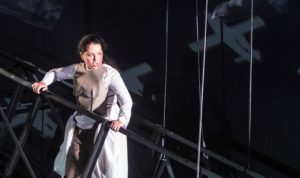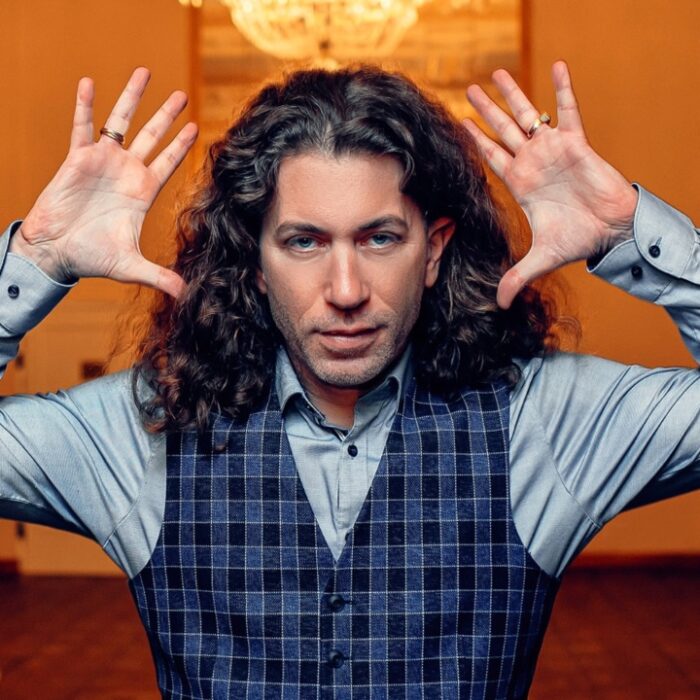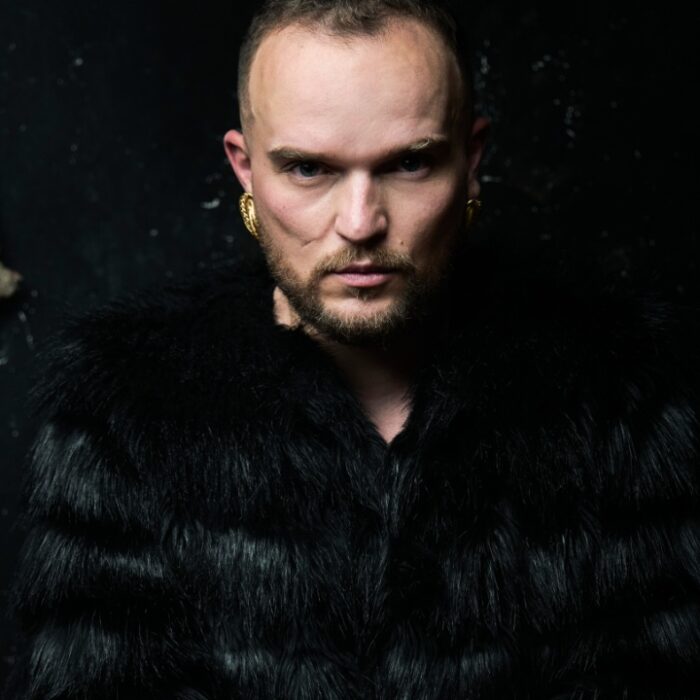
Childhood Sweetheart – Maria Katzarava’s Life-Long Love Affair With Opera [Exclusive]
By David SalazarThe union between an opera singer and his or her craft is a love story, many of which come in two variations.
The first origin story is like most love stories, a chance encounter on their way into adulthood. Their first love was some other profession or dream that, like many first loves, never quite came to fruition. Such has been the case of such singers as Brian Jagde or Javier Camarena or Michael Fabiano.
Then you have those that fell in from their youth, held on to the dream and never let go. These artists usually have the benefit of growing up with musical backgrounds and families.
Arguably, the most famous such instance is Plácido Domingo whose parents were part of a Zarzuela troupe and the superstar rose in that environment.
This was also the fate of Maria Katzarava, a Georgian-Mexican soprano, who recently spoke with OperaWire about her forthcoming performances in the famed Rosenblatt Recitals in London.
Flirting With Music
Growing up in Mexico City to a Georgian father and Mexican mother who were both violinists in the Orquesta Sinfónica de México, Katzarava started her studies as a violinist at age three and gave her first concert at age eight. In early 20th century, this would have precluded a precocious career as a soloist (such superstars as Jascha Heifetz and Yehudi Menuhin had auspicious beginnings at that age), but in Katzarava’s case, singing took over at age 12.
First Dates
Ironically, her first romance with singing was not classical in nature.
“I was originally interested in pop music and sang in a band with other young girls. I loved pop and jazz and listened to those genres constantly,” she told OperaWire in an exclusive interview.
It turned out to be the right move as the people around her were captivated by her singing.
Honeymoon Period
From there her precociousness as a violinist has translated to her vocal career where she has witnessed one joyful triumph after another. First it was the Revelación Juvenil at the Carlo Morelli National Singing Competition in 2002. She would return a few years later to claim the top prize and make her debut at age 21 at the Palacio de Bellas Artes in Mexico City in a performance that featured Anna Netrebko and Rolando Villazón in Gounod’s “Roméo et Juliette.”
Then came the big break when none other than Plácido Domingo invited her to audition in Los Angeles, leading her to be a Young Artist with the Los Angeles Opera.
And finally came a potent victory at the Operalia competition in Canada, where she won first prize in both Zarzuela and the overall competition. She was also the first Mexican female to win the top prize at the competition and only third Mexican to win it overall.
The victory was as unexpected as Katzarava’s initial thoughts after winning the Zarzuela award.
“All I could think about was ‘Hawaii’ because I thought I would be traveling,” she revealed. “But when they awarded me the top prize in Opera, my legs were trembling because the shock was so great. It felt incredible to see all of the hard work and effort pay off and be validated in that moment. I felt that falling in love with my career was the right move.”
Making the victory sweeter was the fact that she got to do it while performing alongside Plácido Domingo, who conducted the final round of auditions.
“There has been no greater influencer in my career than him,” she remarked. “I have had the honor of working with him for 10 years now and every time I have performed and sung with him has been a dream come true. He fills you with so much energy and has truly inspired my career and life.”
An Enduring Marriage
Katzarava’s profile as an opera singer has been in ascendance since then with major house debuts taking place. In all she has been featured around Europe, North and South America and Asia at such renowned places as the Teatro dell’Opera di Roma, the Royal Opera House, the Grand Théâtre de Genève and Teatro Alla Scala Tournée.
Her steady addition of new repertoire has required utmost discipline and care as Katzarava has defined herself as a “passionate singer that gives herself over to the emotion of the moment.” Singing opera gives her excitement and fascination every single day of her life, but she knows that to continue that fulfilling relationship, she must also give tremendous care and dedication to the craft that makes it so.
“I prepare the roles in two to three weeks from a musical standpoint. But it depends on the emotional content of the character and the intentions. I always look to literary sources if an opera is based on another work,” she explained. “This allows me to be more truthful in my interpretations, which is what I aspire to most.”
This year will see Katzarava take projects of major potency.
The first of these is the Rosenblatt Recital, which takes place on Tuesday, Jan. 10 in London, a place where Katzarava had a successful debut as Juliette in Gounod’s famed opera back in 2010-11. The recitals, which take place at Wigmore Hall, are prized for featuring major singers. In 2016, the recitals showcased such stars as Javier Camarena, Juan Diego Flórez, Mariela Devia and Bryan Hymel among others.
Katzarava will sing alongside tenor Stefano Colla in a concert that features music by Verdi, Massenet, Giordano and Puccini among others. Simon Lepper will accompany on the piano.
“It’s such an honor to return to London for this recital and especially with Stefano La Colla who is one of the great singers in the world,” she enthused. “It will be the first time I share the stage with him, which is really exciting.”
Once the recital is over, the singer takes on two new roles in two operas by her two favorite composers, Verdi and Puccini.
“They are both extraordinary. Their music has such passion and they both wrote incredible melodies for the female voice,” Katzarava enthused.
But if she had to choose one? “I think Puccini was a true lover of the female voice and I have a greater connection to the music he wrote, especially in the roles of Liù and Madama Butterfly.
“Both roles in particular have given me some of the greatest successes in my career. I was lucky to sing Liù at the Termas de Caracalla in Rome last year as well as for my debut at the Festival de Peralada in Girona, Spain. And I was lucky to debut Madama Butterfly this past September in the Teatro Massimo in Palermo. That role is difficult and drives me crazy. But I am still young and need to take it easy with it because I know that it will be with me for many years to come.”
And now she can add two other difficult roles to her repertoire, starting with Lina in Verdi’s “Stifellio” at the Konzerthaus Berlin. That role is known for her vocal and dramatic challenges as unlike most Verdi sopranos, Lina is no chaste or faithful heroine. She is an adulteress and her journey through the work pits her at odds with her equally complex husband.
“I think Lina is a strong person whose story could happen to anyone that lives betrayal, infidelity and shows their carnal weaknesses. Anyone can lose their direction when desires invade them and they forget to weigh the positive or negative consequences of taking certain actions,” Katzarava analyzed.
After Lina comes the titanic “Tosca,” which Katzarava will take on at the Opera de Tours in April.
“The opera is fascinating from its first bars. The love duet is beautiful. The second act with Scarpia is a great crescendo. The ‘Vissi d’arte’ is a mythical aria. And the end, the suicide is captivating and thrilling.”
Unlike Lina, who cheats on her husband, Katzarava asserts that Tosca and her lover Mario Cavaradossi, a flirt, are “madly in love.”
“She knows what she wants, to the point that she is possessive and jealous,” the soprano noted. “But you have to remember that she is a famous singer in Rome at that time and she can have any lover she chooses. The fact that she is willing to give her life for him and him for her tells me that they are truly in love.”
Tosca gives her life, but she also takes one away during the famous scene in Act 2 when she murders Baron Scarpia. That is a dramatic moment that most sopranos relish most as it is one of the few instances in all of opera where a heroine actually kills someone.
“You build to that moment psychologically by following Scarpia’s moral ugliness throughout the second act. He shows himself to be a tyrant in every sense of the word. He is corrupt. He tortures. He murders. And he wants to rape her,” she explained. “At the end of the day, Tosca murders him in self-defense. She avoids rape! And that makes it identifiable and empathetic for the interpreter. It also helps that Puccini writes every dramatic beat in the score. He was a true dramatic genius.”
Sharing the Love
Katzarava’s perception of opera was shaped by her childhood. Being exposed to classical music from a young age, she never adopted the known stereotypes, a fate that many others are unable to avoid.
For Katzarava, the battle to breaking the stereotypes are difficult and must be taken on slowly and through education.
“It comes down to people not only giving the art form a chance, but also giving themselves a chance to enjoy the art form. And when they do, they will find that it is similar to going to the movies and that we are like movie actors that can sing. If they give it a chance, they will find works that show new points of view that reflect modern society,” Katzarava explained. “Of course that comes down to education and that is why we must involve the children. They are like sponges that absorb everything and we need to give them the tools to learn to appreciate and, more importantly, enjoy opera.”
But the single most important piece of advice for reshaping opera’s perception in the main stream?
“You can’t be afraid of opera. When you finally discover it, you fall in love with it and never want to leave it.”


